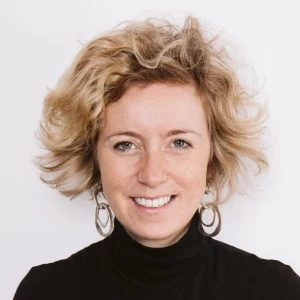Hello,
I have BCG final round interviews coming up in about a week. What should I expect? What types of cases, questions, etc.? How do these differ from the first round? How would you recommend I prepare?
Thank you!
Hello,
I have BCG final round interviews coming up in about a week. What should I expect? What types of cases, questions, etc.? How do these differ from the first round? How would you recommend I prepare?
Thank you!

Dear Anonymous A.,
Congratulations on getting to the final round at BCG!
Let this sink in: your First Round interviewers have just expressed a very high degree of confidence (enough upon which to stake their own professional reputations) that you are good enough to join BCG and that you are worth the time investment for a busy partner to ultimately concur.
So, what should you expect?
1. Less Structure: BCG Partner interviews will be less-structured, less-specific, and much closer to a real-word synthesis of any Case you might have done in the First Round.
The partners are all the way ‘upstream’ in the case value chain at the point. Few people in the firm have seen the case, and the partner was certainly down in the muddy trenches building the case from all those little pieces with their own hands.
That raw quality remains with them whenever they discuss their case. They are presenting it to you likely before the form in which it was eventually assigned to a PM + 3 team and neatly tied up into workstreams, SteerCo documents, and working hypotheses.
Consequently, you need to be prepared to meet the partner where they are.
Hold on to everything you learnt in your First Round Prep.; keep being that highly-structured issue-tree Case-cracker…but also embrace those real-world aspects which matter to the partner because in this case, the partner's eye is more focused on the real-world financial implications of the case and will assess you on your ability to identify them.
2. More brainstorming: at the partner level, every coherent branch of brainstorming at the ‘upstream’ stage is a new workstream that can be assigned to a billable junior colleague (potentially more revenue). Even better, each branch could potentially be an opportunity for a 2.0 version of the case upon completion of 1.0 (potentially even more revenue!).
Consultants are greedy creatures, so when a partner sees a candidate who can translate actual wins into additional wins, they will be hugely swayed in your favour during the interview.
Learn, as a matter of highest priority, to develop the breadth, depth, and stamina to brainstorm in an exhaustive manner that shows clear delineation of major branches of issues/attributes/implications.
Practise this!
You know you're doing it right if you feel you just ran a 10k afterwards. Be out of intellectual breath!
How do you practise this?
Fall in love with that section of the Case where your Case partner is asking you:
“In this situation, what should X do?” and every time the Case partner says, “What else?” you have a dozen more things to say.
3. More time spent discussing Recommendations & Risks to the Recommendations: again, this is where the money lies, so this is what the partner most cares about.
Consultants are ultimately paid to generate insights…the more actionable the insights, the better.
A partner wants to see you go deep within your, hopefuly, wide array of recommendations. They want you to discuss them in a real-world sense, draw on existing parallels to make your point, and transition to what implementation and value-add for the client could look like.
Think of it this way when trying to do this at the interview; ask:
“Am I narrating these recommendations to the client in such a manner that if the partner were the client who had just paid me $5 million for 2 months to ‘solve’ Problem X that they would be pleased enough to turn around and pay me $5 million more to solve Problem Y?”
This must come through in your response!
How do you prepare for this?
I know you're prepping for BCG, but the closest parallel to how I might prep for the Recommendations portion of the BCG Partner Round Case is by adopting the method used at McKinsey interviewer-led cases where you make a detailed presentation of your main framework/issue tree at the start of the Case and state your working hypothesis.
You need to be that detailed!
What types of questions, cases, etc.?
(I love your punctuation, by the way: the Oxford Comma AND the abbreviation period included even though it immediately precedes another punctuation mark…are we related?)
+ Higher-level Cases that are raw, unstructured, truer to real life, and more ambiguous to pursue.
+ Less focus on quantitative manipulation, and more on big, out-of-the-box thinking.
+ More mid-point, abrupt changes in direction that can feel random or even unconnected; this often happens when during the real case, a new hypothesis emerged, or the scope of the problem was expanded.
The partner wants to hear you react to that in a manner that would have ultimately generated value for the client by either creating additional opportunities for value creation, or stepping off paths that could have ended in ambiguity for the client or even value destruction.
How would [I] recommend [you] prepare?
1) Re-orient yourself to a partner mindset.
2) Prep HARD for the Fit portion of the interview, this will matter more to the partners than it did in the First Round.
3) Seek out Cases with more complicated structuring.
Sadly, the good ones that fit this bill are few and far between, but they are out there. Find them!
4) DO NOT Case with mediocre or even above-average partners.
From here on out, your partners must be top-shelf quality.
5) At the conclusion of the Case, remember to ask the partner, “So, can you tell me how you ultimately went about solving this case?”
Compare their responses with your answers and conversationally lean into the dynamic. Show the partner you truly care about extracting value from the abyss of complexity.
6) Incorporate any feedback you received from the First Round. If the partner has been told to look out for potential gaps that were flagged in the First Round, they will usually test this. If you reinforce these gaps, things will start to get shaky.
7) Let your personality shine through holistically and wholesomely…but also professionally.
The partner is asking, “Can I staff Anonymous A. next week on my big cost reduction project with a new TelCo entrant that feels like it's going to expand into a larger Case?”
Partners look at final round candidates the way Simon Cowell used to gape from the judges table at ‘marketable talent’ in the X-factor series: can I see her selling records?
Well, same dynamic here.
As to your other question: How do these differ from the First Round?
I imagine my somewhat lengthy discourse above makes this clear!
You're almost at the finish line, mate!
Keep pushing, up your game, and come back and tell us how it went!

Hi there,
While I don't disagree with Toyyinn in principle (on average, he's right), please be careful coming in and expecting any one thing!
You might get interviews who are more serious or more relaxed. The case could be longer or shorter. More intense of less intense. More structured or less structued.
Are there tendencies? Yes! Is it helpful to try to figure them out and lock yourself into that thinking, expecting that to happen, only to be thrown off-guard when it doesn't happen? Not at all!
I just received this comment from a candidate of mine who just got an offer: “I came in expecting the unexpected as you taught me, and I truly believe that’s what let me get through.”
A few things to keep in mind for the next round:
Case Reading: https://www.preplounge.com/en/articles/how-to-shift-your-mindset-to-ace-the-case
Fit Reading: https://www.preplounge.com/en/articles/tell-me-about-yourself-interview-question

Hi there,
the interview will be in the same structure and way as the 1st round, the only difference that you will have some more senior people, including Partners, but business case and personal type stands. Hence I would just make sure your personal stories are sharp and you aced enough cases!
All the best!
Lucie
Was this answer helpful?

Hello,
Congratulations on getting a final round interview! The main difference between first and final round interviews is that final rounds are typically done by more senior consultants (partners and associate partners). Other than that, the format is identical - you should expect a case portion and a behavioral portion, and prepare for them in the same way.











